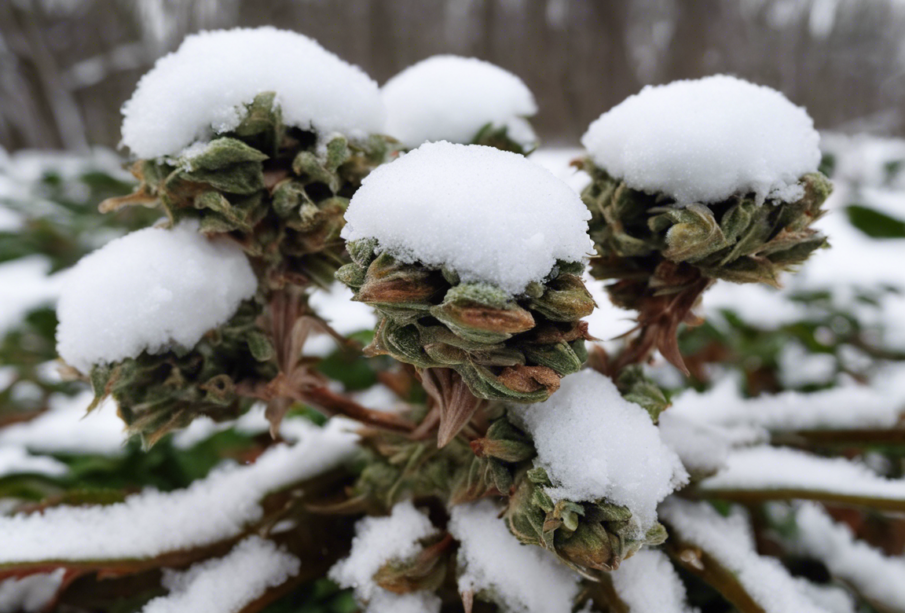Unveiling the Chronic Effects of Snow Caps Weed

Have you ever wondered about the chronic effects of Snow Caps weed on your body and mind? As more states and countries around the world begin to legalize marijuana, it’s essential to understand the long-term implications of using this substance. In this comprehensive article, we will delve into the chronic effects of Snow Caps weed, a popular strain known for its potency and unique characteristics. From physical health impacts to mental well-being, we will explore the various ways in which this strain can affect you over time.
Understanding Snow Caps Weed
Snow Caps weed, also known simply as Snowcap, is a sativa-dominant hybrid strain that is renowned for its high THC content and energizing effects. This strain is a cross between Snow White and Cat Piss, resulting in a potent combination of uplifting euphoria and a sweet, citrusy aroma. Due to its strong cerebral effects, Snow Caps weed is often favored by those seeking a daytime boost or a creative spark.
Physical Effects of Chronic Use
1. Respiratory Health:
Long-term smoking of any substance, including cannabis, can have detrimental effects on lung health. Chronic use of Snow Caps weed through smoking may lead to respiratory issues such as chronic bronchitis and an increased risk of lung infections.
2. Cardiovascular Health:
While acute use of cannabis can cause an increase in heart rate, the chronic effects of Snow Caps weed on cardiovascular health are still being studied. Some research suggests that regular cannabis use may be linked to an increased risk of heart disease and stroke.
3. Appetite and Weight:
One of the well-known effects of cannabis is an increase in appetite, often referred to as the “munchies.” Chronic use of Snow Caps weed may lead to weight gain and related health issues, especially if one does not make conscious dietary choices.
Mental Effects of Chronic Use
1. Cognitive Function:
Prolonged use of Snow Caps weed may impact cognitive function, particularly in memory, attention, and decision-making. Frequent users may experience difficulties in retaining information and focusing on tasks requiring cognitive flexibility.
2. Mood and Behavior:
While cannabis is often used recreationally to uplift mood and reduce stress, chronic use of Snow Caps weed can sometimes lead to mood disorders such as anxiety and depression, especially in individuals predisposed to these conditions.
3. Addiction and Dependency:
Like any substance, cannabis has the potential for addiction and dependency. Chronic users of Snow Caps weed may develop a tolerance to its effects, requiring higher doses to achieve the same results. Withdrawal symptoms such as irritability, insomnia, and decreased appetite may also occur when trying to quit.
Social and Legal Implications
1. Employment and Legal Concerns:
It’s essential to consider the legal implications of chronic cannabis use, especially in regions where it is not fully legalized. Drug testing in the workplace may detect THC in your system, potentially leading to job loss or legal consequences.
2. Social Interactions:
Regular use of Snow Caps weed may impact your social interactions and relationships. Some individuals may feel isolated or experience conflicts with family and friends who do not support their cannabis use.
Strategies for Harm Reduction
While the chronic effects of Snow Caps weed can pose risks to your health and well-being, there are strategies you can employ to minimize harm and make informed choices about your cannabis consumption:
- Moderation: Practice moderation in your cannabis use to reduce the risk of developing tolerance and dependency.
- Diversify Consumption Methods: Consider alternative methods of consuming cannabis, such as edibles or vaporization, to mitigate the potential respiratory impacts of smoking.
- Seek Support: If you feel that your cannabis use is becoming problematic, don’t hesitate to seek support from healthcare professionals or support groups specializing in substance abuse.
Frequently Asked Questions (FAQs)
1. Is Snow Caps weed more potent than other cannabis strains?
Snow Caps weed is known for its high THC content, making it potent compared to many other strains. However, individual potency can vary based on growing conditions and genetic factors.
2. Can chronic use of Snow Caps weed lead to long-term memory problems?
Prolonged cannabis use, including Snow Caps weed, has been linked to memory impairments, especially in individuals who started using at a young age or heavily consume the substance.
3. How does Snow Caps weed affect sleep patterns with chronic use?
While cannabis can initially help with sleep by inducing relaxation, chronic use of Snow Caps weed may disrupt sleep patterns and lead to difficulties in achieving restful sleep.
4. Is it possible to develop a tolerance to Snow Caps weed over time?
Yes, chronic use of Snow Caps weed can lead to the development of tolerance, requiring higher doses to achieve the same effects. This can contribute to dependency and addiction.
5. Are there age-related risks associated with chronic use of Snow Caps weed?
Younger individuals, particularly adolescents, are more susceptible to the negative effects of cannabis on brain development and cognitive function. Chronic use at a young age can have long-lasting impacts on mental health.
In conclusion, understanding the chronic effects of Snow Caps weed is crucial for making informed decisions about your cannabis consumption. While this strain can offer enjoyable experiences and therapeutic benefits, it’s essential to be aware of the potential risks associated with long-term use. By staying informed, practicing harm reduction strategies, and seeking support when needed, you can mitigate the adverse effects and promote a mindful approach to cannabis consumption.

